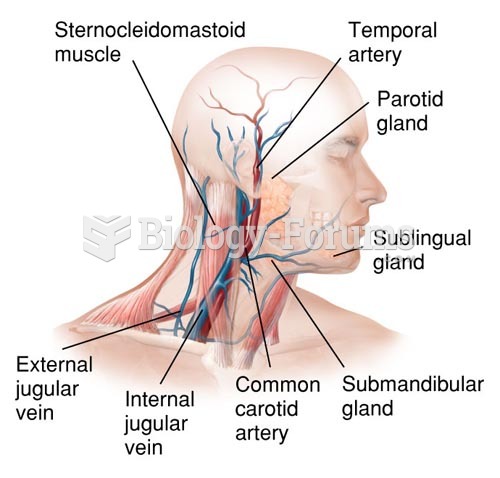|
|
|
When blood is deoxygenated and flowing back to the heart through the veins, it is dark reddish-blue in color. Blood in the arteries that is oxygenated and flowing out to the body is bright red. Whereas arterial blood comes out in spurts, venous blood flows.
Pubic lice (crabs) are usually spread through sexual contact. You cannot catch them by using a public toilet.
In 1885, the Lloyd Manufacturing Company of Albany, New York, promoted and sold "Cocaine Toothache Drops" at 15 cents per bottle! In 1914, the Harrison Narcotic Act brought the sale and distribution of this drug under federal control.
Urine turns bright yellow if larger than normal amounts of certain substances are consumed; one of these substances is asparagus.
There are 20 feet of blood vessels in each square inch of human skin.







